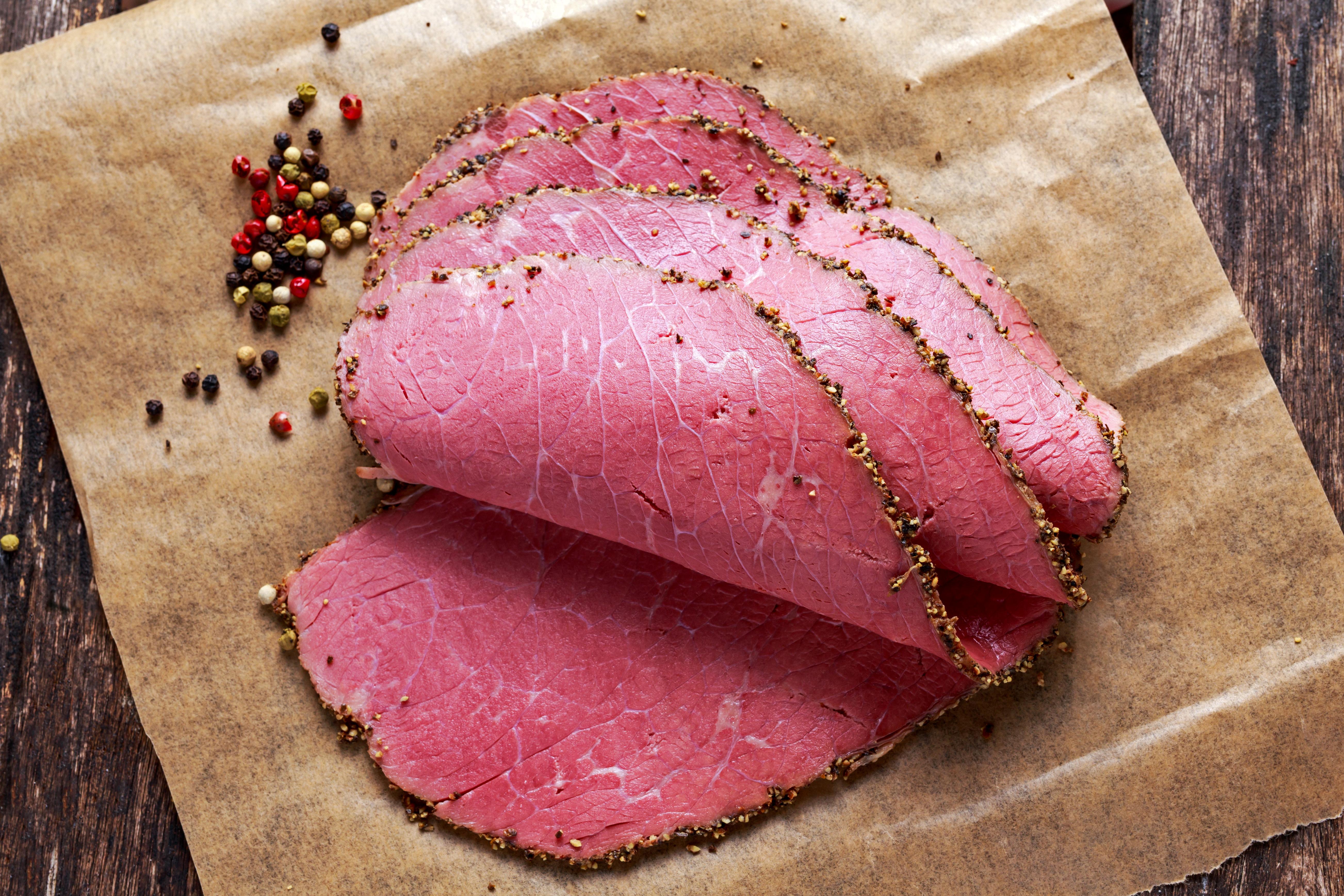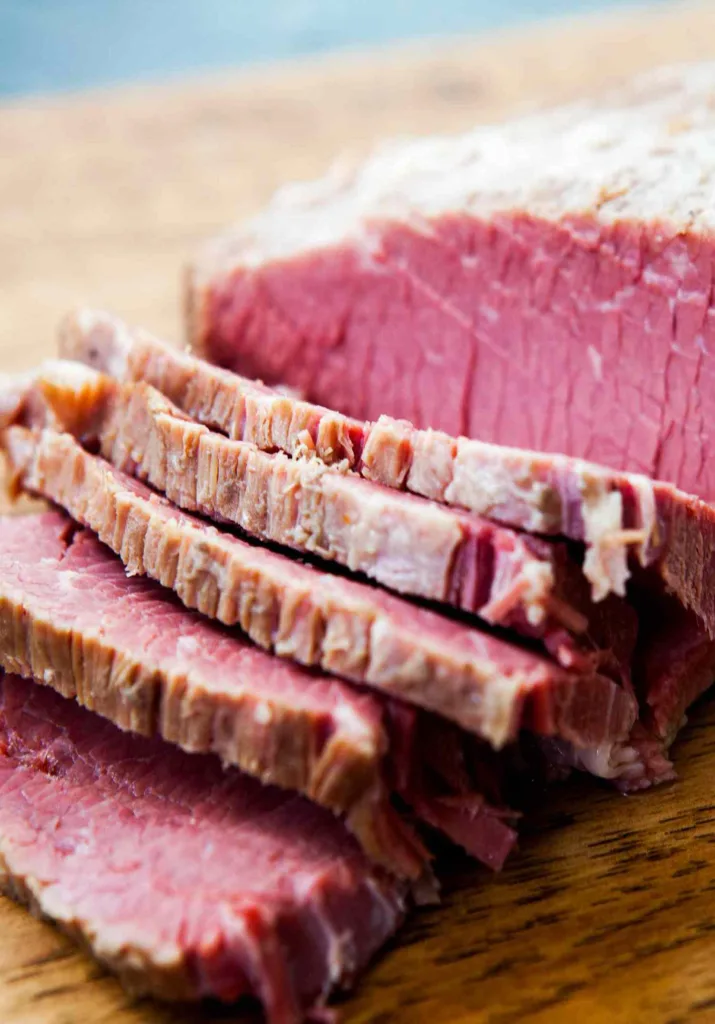Corned beef is a beloved meat product that has been aound for centuries. It is a type of processed meat that is made from beef that has been cured in a salt brine. While it is a popular choice for sandwiches, stews, and other dishes, many people wonder if corned beef is actually healthy.
One of the main concerns with corned beef is its high sodium content. In fact, a 100-gram serving of corned beef can contain up to 973 milligrams of sodium, which is a significant amount. This can be problematic for people who are trying to limit their sodium intake, as consuming too much sodium can lead to high blood pressure and other health problems.
However, it is important to note that not all types of corned beef are created equal. Some varieties may have a lower sodium content than others, so it is important to read the label carefully before making a purchase.
Another concern with corned beef is its status as a processed meat. Processed meats have been linked to an increased risk of certain health problems, including heart disease and cancer. This is because they often contain additives and preservatives that can be harmful to the body.
Despite these concerns, corned beef does have some nutritional benefits. For example, it is a good source of protein, which is essential for building and repairing tissues in the body. It also contains important vitamins and minerals, such as iron and zinc.
So, is corned beef healthy? The answer is not a simple yes or no. While it does have some nutritional benefits, it is important to consume it in moderation and to choose the right type of corned beef. Opting for a lean cut of corned beef and limiting your overall consumption can help you reap the benefits of this delicious meat without putting your health at risk.
Corned beef can be a tasty addition to your diet, but it is important to consume it in moderation and to choose the right type. While it does have some nutritional benefits, its high sodium content and status as a processed meat make it a less than ideal choice for everyday consumption. Ultimately, the decision of whether or not to include corned beef in your diet is up to you and should be made based on your personal health goals and dietary needs.
Comparing the Health Benefits of Corned Beef and Regular Beef
Corned beef and regular beef are two types of beef that differ in their nutritional values and sodium content. Corned beef is beef that has been cured in brine, which is a saltwater solution, and seasoned with spices. On the other hand, regular beef is the meat that is obtained from the muscle tissues of cattle.
When it coms to nutritional values, regular beef is healthier than corned beef. Raw beef has a higher protein content (26g per 100g) than corned beef (22g per 100g). Additionally, regular beef contains essential vitamins and minerals such as vitamin B12, zinc, and iron, which are important for maintaining good health. Corned beef, on the other hand, contains high levels of sodium due to the curing process that it undergoes.
Sodium is a mineral that is necessary for maintaining fluid balance in the body, but excessive intake of sodium can lead to high blood pressure, heart disease, and stroke. According to the American Heart Association, the daily recommended intake of sodium for an adult is 2,300 mg or less, and for those with high blood pressure, it is 1,500 mg or less.
In addition, raw beef (sodium- 66 mg per 100g) also has a lower sodium content than corned beef (sodium- 973 mg per 100g). Therefore, with higher nutritional values and lower sodium content, regular beef is healthier than corned beef.
To summarize, while both corned beef and regular beef are sources of protein, regular beef is a healthier choice due to its higher nutritional values and lower sodium content. So, if you are looking for a healthier option, then regular beef is the way to go.

Source: livestrong.com
Is Corned Beef a Processed Meat?
Corned beef is considered a processed meat. The World Health Organization (WHO) defines processed meat as meat that has been modified from its natural state through salting, curing, fermentation, smoking, or other processes to enhance flavor or improve preservation. Corned beef is made by brining beef brisket in a mixture of salt, sugar, and spices, and then cooking it. This process preserves the meat and gves it a distinctive flavor.
In addition to corned beef, other examples of processed meats include sausages, hot dogs, beef jerky, canned meat, meat sauces, lunch meats, and bacon. These types of meats have been linked to an increased risk of certain health problems, such as heart disease and certain types of cancer, when consumed in large quantities.
It’s important to note that not all processed meats are created equal. Some processed meats, such as those that are made with lean cuts of meat and minimal additives, can be part of a healthy diet when consumed in moderation. However, it’s generally recommended to limit consumption of processed meats and focus on lean proteins, such as chicken, fish, and legumes, to promote overall health and reduce the risk of chronic diseases.
The Healthiest Cut of Corned Beef
When it comes to choosing the healthiest cut of corned beef, it is important to consier the level of fat content. The leaner the cut, the better it is for your health. The two primary cuts of corned beef are the “flat” and the “point.”
The flat cut is leaner and features a more consistent thickness. It is a great option for those looking to reduce their fat intake. The flat cut is often used for making sandwiches and is a popular choice for those watching their weight.
The point cut, on the other hand, is the thicker end of the brisket and is fattier. It features inter-muscular fat or marbling, which gives it a richer taste. While it may be more flavorful, it is not the healthiest option.
If you are looking for the healthiest cut of corned beef, then a whole brisket, which includes both the flat and the point, is probably the best choice. This way, you can enjoy the flavor of the point cut while also getting the leaner benefits of the flat cut.
In addition to choosing the right cut of corned beef, it is important to keep portion sizes in mind. Corned beef can be high in sodium, so it is important to enjoy it in moderation. Adding vegetables to your meal can also make it a healthier option.
The Health Benefits of Canned Corned Beef
Corned beef is a popular canned meat that has been a part of people’s diets for centuries. However, many people question its nutritional value and its impact on health. In this article, we will discuss the nutritional value of corned beef and its health implications.
Corned beef is a good source of protein, which is essential for building and repairing muscles, tissues, and cells. It also contains essential vitamins and minerals, such as vitamin B12, zinc, and iron. Vitamin B12 is essential for healthy red blood cells and the nervous system, while zinc is important for immune function and wound healing. Iron is necessary for healthy blood and oxygen transport in the body.
However, corned beef is also high in sodium, with one serving containing up to 1,000 milligrams. This can be a problem for people with high blood pressure, as excess sodium intake can lead to fluid retention and increased blood pressure. Additionally, corned beef is a processed meat, which means it contains additives and preservatives that can be harmful in large amounts.
There is evidence linking the consumption of processed meats, such as corned beef, with an increased risk of cancer, particularly colorectal cancer. A study published in the journal Cancer Epidemiology, Biomarkers & Prevention found that people who ate the most processed meat had a 20% higher risk of colorectal cancer compared to those who ate the least(1).
Moreover, corned beef contains nitrites and nitrates, which are added to preserve the meat and give it its characteristic pink color. When thee compounds are heated or digested, they can form nitrosamines, which are known carcinogens. Nitrosamines have been linked to an increased risk of cancer, particularly stomach cancer(2).
In addition, the high sodium content of corned beef can increase the risk of heart disease and stroke. A study published in the New England Journal of Medicine found that a high-sodium diet was associated with an increased risk of cardiovascular disease and mortality(3).
While corned beef can be a good source of protein and essential nutrients, it is still a processed meat that is high in sodium and contains harmful additives and preservatives. Consuming processed meats, including corned beef, has been linked to an increased risk of cancer and other health problems. Therefore, it is recommended to limit the consumption of processed meats and choose healthier protein sources, such as fresh meats, fish, and plant-based proteins.

Conclusion
While corned beef may have some nutritional benefits, it is important to consider the potential risks associated with consuming processed red meat. High levels of sodium and carcinogens can increase the risk of heart disease and cancer. When choosing corned beef, it is best to opt for leaner cuts and limit overall consumption. It is also important to incorporate a variety of other protein sources into your diet, such as fish, beans, and poultry, to ensure a well-rounded and healthy diet.
